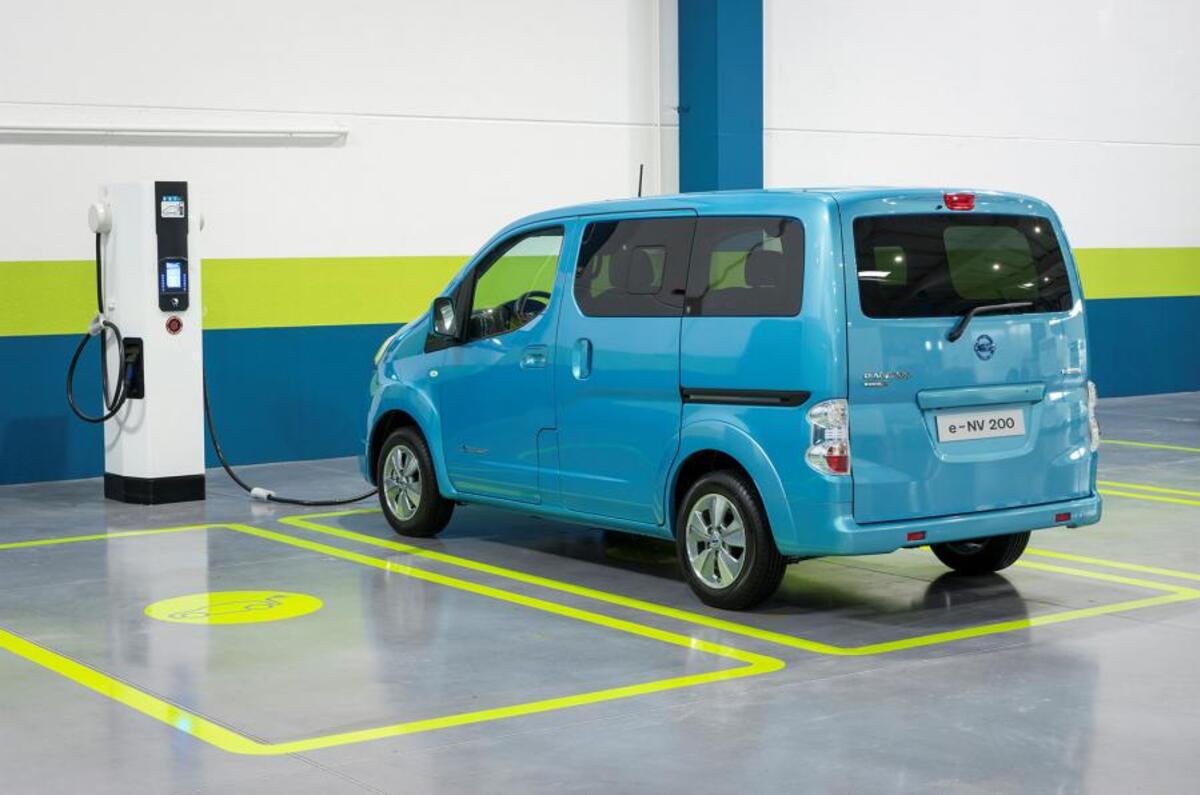Nissan and energy giant EDF Group have reached a deal to work together to develop smart charging technology for electric vehicles – including systems that could allow Nissan Leaf and Nissan e-NV200 van owners to earn discounts on their electricity bills.
The two firms already co-operate on a number of EV systems, but have expanded their collaboration with a focus on smart charging systems in the UK, France, Belgium and Italy. In particular, the agreement will focus on ‘vehicle to grid’ (V2G) systems, which allow the energy stored in a car battery that is plugged into a home charger to be ‘sold’ back to a supplier when needed.
Nissan will focus on developing technology that will work with the electric Nissan Leaf and Nissan e-NV200, with EDF leading the development of V2G charging systems and services.
The technology is likely to be particularly relevant to businesses, which could have large fleets of electric vehicles plugged in outside work hours without being used. Such a fleet could offer a significant amount of energy storage capacity, which a supplier such as EDF could pay to use in order to balance supply elsewhere.
Francisco Carranza, the boss of Nissan Energy in Europe, said the deal was “another sign that our vision of an electric ecosystem is becoming a reality.” He added that a V2G solution would be “a logical next step” for Nissan EV owners to manage their energy supply and open “new revenue opportunities.”
Read more
Nissan Leaf price raised in the UK
Taking on the Three Peaks Challenge in a Nissan Leaf
Nissan and government lead UK's biggest vehicle to grid project








Join the debate
Add your comment
Cause and Effect
Whilst you may get a couple pf pennies per kilowatt for charging at night and releasing by day you're effectively doubling your battery usage, will this halve the battery life?
Plus, an 20,000 mile EV's battery becomes a 40,000 mile battery which won't be reflected on the odometer come sale time, great for the seller not so good for the buyer.
xxxx wrote:
It’s rapid 50 kW+ charging that causes problems (I think a lot more than 50) - the max charge discharge under v2g is 7 kW so v unlikely to be a problem
'v unlikely'?
I'm pretty sure regardless of the charging rate, charging and discharging more than you would otherwise would, to an some extend, degrade the battery.